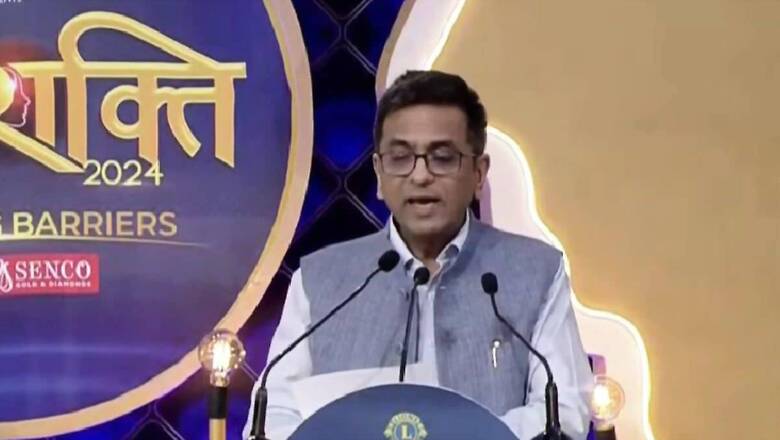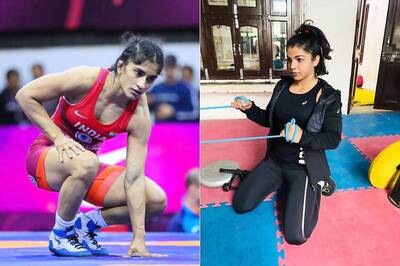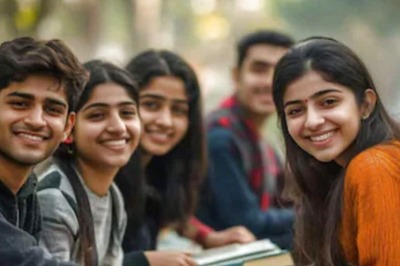
views
Chief Justice of India DY Chandrachud, in his keynote address at the CNN-news18 SheShakti event on Monday, said that “good laws along, including stringent laws, don’t make a just society”, and that changing mindset is key.
“Above all, we need to change our mindsets. The mindsets must move from making concessions for women to recognising their entitlement to lead life based on freedom and equality…We must zealously guard against apparently protective laws infringing women’s liberties and choices…As women have been clamouring in recent past, we do not want concession at workplace, we just want right to equal opportunity. Like every element of workforce, we are entitled to safer workplaces,” he said.
“Issues of safety, equality of opportunity, dignity and empowerment are not subsets that ought to be discussed in silos. Every one of us in the country has to be part of this conversation. Talking about women’s rights is not a women’s thing, it is about all of us to engage in serious conversations at evenings like these. The perspective that women bring to this table is indeed irreplaceable. No amount of learned wisdom about the world can replace the insights of women who have shattered many a glass ceiling,” the CJI said.
“But I do believe that heads of institutions, thought leaders and citizens of this country cannot shrug responsibility. Conversations such as these are not only about women, but about the ability of our system and social structures to design more humane society. Equal participation of women in governance, policy and leadership roles is linked to better development outcomes. When we either create or fail to address barriers in the path of women, we are jeopardising our quest for a better society. Indifference is no longer an option,” he said.
"Good laws do not make for a just society. Above all, we need to change our mindsets": CJI DY Chandrachud at News18 #SheShakti2024#BreakingBarriers #WomenEmpowerment pic.twitter.com/1PX4I7OzIH— News18 (@CNNnews18) September 16, 2024
“Before we adopted the Constitution of India, the Indian women’s charter of rights was drafted by Hansa Mehta. She was an activist, a diplomat and a member of the Constituent Assembly, the body tasked with framing the Constitution. Hansa Mehta was a feminist who famously argued that references to men could not be used as a synonym for humanity. Article 1 of the Universal declaration of human rights now states that all human beings are born free and equal, rather than all men are born free and equal. Earlier this year on the International Day for Women and Diplomacy, Dennis Francis, the President of the United Nations General Assembly, wondered whether the Universal declaration of human rights would be truly universal, but for Hansa Mehta’s insistence on this replacement of terminology. Mehta’s 1946 charter was a prescient document. It envisaged women’s rights to limit the size of the family, recognition of women’s work as homemakers and demands for creches for working women.”
“Hansa Mehta’s charter influenced the contents of our Fundamental Principles of rights and directive policy. Some of its articles were truly ahead of its time and would become part of the women’s movement worldwide, much after Mehta articulated them. More importantly, this charter imagined Indian women not as recipients of welfare and assistance, but as contributors to the reconstruction of independent India. The not-so-quiet subtext of Hansa Mehta’s vision was a reimagined public life for Indian women, away from the traditional position and the public-private space divide, a break from the male default option,” Chandrachud said.
“What that simply means is this – accept every woman for what she is. The labour force participation of women is 37%. The contribution of women to the GDP is 18%. We have not exactly met the pre-independence hopes about women’s participation. A part of the reason is the continued gendered allocation of domestic labour. Even as women are entering the workforce, they are never divorced from the domestic realm. They must simultaneously juggle domestic and caregiving chores. They are doubly burdened, almost as a penalty for transgressing the domestic threshold. Besides domestic work being unaccounted for in economic terms, it obstructs women’s ability to hold on to paid work or to take on greater professional responsibility. Reports now indicate that gender disparity in employment is on the decline and women’s salaried employment is set to increase. We hope that this would bridge the gender gap in earnings significantly, if not eliminated entirely. Gender equality is not just a function of statistics, but a function of the lived realities of women,” the CJI said.
“This also applies to assimilate traditionally excluded groups such as persons with disabilities and transgender persons. Our expectations from these groups are heavily based on the stereotypical understanding of their supposedly innate tendencies. We fail to appreciate them as individuals. As women break rank and enter professional workspaces traditionally dominated by men, they are expected to act like men. Ironically enough, they are tacitly expected to also act like women. Act their part, lest they upset the code of womanly conduct. Paradoxically, women may run the double risk of being labelled as demure or shrill, depending upon the assessor’s stereotypical understanding of how women “ought” to behave,” he said.
“Rewards and prejudices are delinked from the professional and coloured by the gender identity alone. As she navigates this tightrope, constantly pitting her capability against perception, she must do so unsupported. For a large part of their lives, institutions have operated in an information deficit about the objective abilities of women. Women traditionally would not have priority in institutional design across the world. Even as they break into elusive and exclusionary spaces, women are met with institutional apathy at best and hostility at worst. The result is high attrition rates and professional stagnation at entry and midlevel roles for women,” he said.
"Equal participation of women in governance, policy, leadership roles is positively linked to better development outcomes. When we either create or fail to address barriers in the path of women, we are jeopardizing our quest for a better society. Indifference is no longer an… pic.twitter.com/czKusVyAFb— News18 (@CNNnews18) September 16, 2024
“…Once you liberate women from the network of patriarchal, social attitudes, provide to them a level-playing field on the basis of equality of opportunity, they not only compete shoulder-to-shoulder with other segments of society but are far ahead of the curve. But unfortunately even a measurable show of skill does not guard against the danger of women’s achievements in areas beyond this normative framework,” he said.
In its Season 2, News18 SheShakti celebrates the trailblazing women propelling India to the global forefront.
Under the theme ‘Breaking Barriers’, this year’s event in New Delhi on September 16 throws spotlight on how women are redefining success and driving transformative change. The summit has an inspiring line-up of pioneers from diverse fields — politics, science, arts, business, sports and entertainment — to share their ground-breaking journeys and insights on empowerment, resilience and leadership, reflecting the unstoppable momentum of women leading India’s progress.




















Comments
0 comment